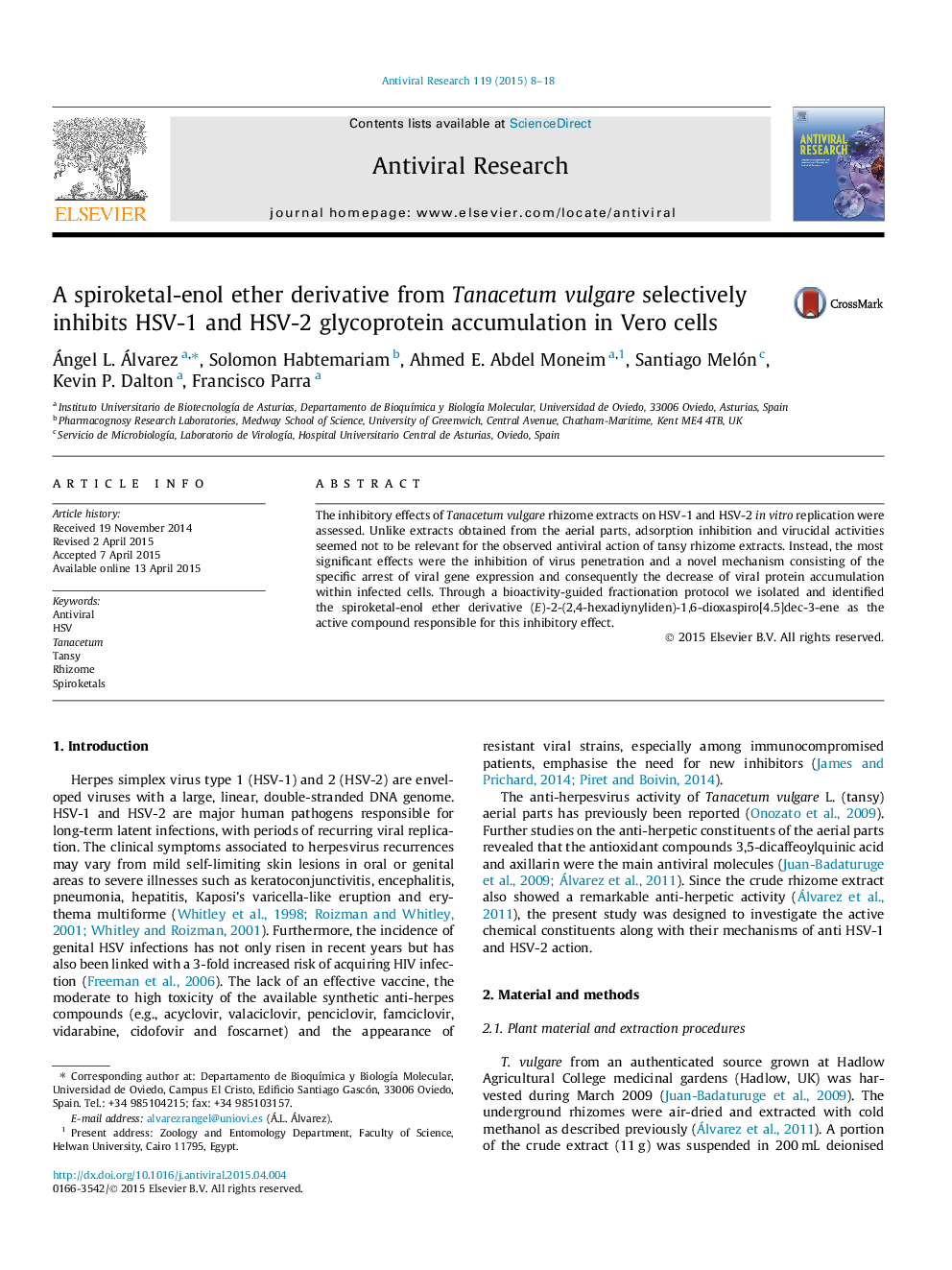| Article ID | Journal | Published Year | Pages | File Type |
|---|---|---|---|---|
| 5821999 | Antiviral Research | 2015 | 11 Pages |
â¢We investigated the anti-HSV effects and mechanisms of action of Tanacetum vulgare rhizome extracts.â¢The samples blocked virus entry and arrested the synthesis of HSV-1 gC and HSV-2 gG glycoproteins.â¢Using an antiviral activity-guided fractionation protocol, a spiroketal-enol ether derivative was isolated.â¢The viral glycoprotein reduction was due to the inhibition of gC and gG-coding mRNA synthesis.â¢The identified spiroketal-enol ether compound was responsible for this novel inhibitory effect.
The inhibitory effects of Tanacetum vulgare rhizome extracts on HSV-1 and HSV-2 in vitro replication were assessed. Unlike extracts obtained from the aerial parts, adsorption inhibition and virucidal activities seemed not to be relevant for the observed antiviral action of tansy rhizome extracts. Instead, the most significant effects were the inhibition of virus penetration and a novel mechanism consisting of the specific arrest of viral gene expression and consequently the decrease of viral protein accumulation within infected cells. Through a bioactivity-guided fractionation protocol we isolated and identified the spiroketal-enol ether derivative (E)-2-(2,4-hexadiynyliden)-1,6-dioxaspiro[4.5]dec-3-ene as the active compound responsible for this inhibitory effect.
Graphical abstractDownload full-size image
